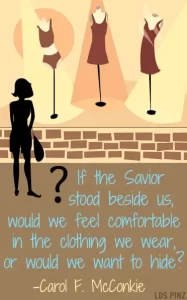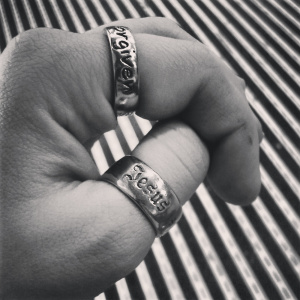Editorial Note: The following is reprinted with permission from Eleanor Skelton’s blog. It was originally published on October 26, 2015.
I spent my teenage years immersed in purity culture, in both evangelical and fundamentalist Christian circles.
If you were homeschooled, went to youth group, or wore a purity ring, you probably know what I’m talking about.
Purity culture was an ideology, a movement complete with books like Dannah Gresh’s Secret Keeper, promoted in concerts by Christian artists like Rebecca St. James and single women’s retreats, like the one I went to that was organized by Biblical Discipleship Ministries and hosted at Bill Gothard’s ALERT Academy in Big Sandy, Texas. (Note: Bill Gothard has been accused by at least 10 women of sexual abuse and the court case was featured in Amazon Prime’s docuseries Shiny Happy People in June 2023.)
A conservative Muslim man who added me on Facebook several months ago often posts religious memes or quotes from the Quran. This week, he shared a few memes that seemed oddly familiar, because they echoed many things that purity culture taught me.
Here they are, along with their Christian counterparts.
1. You will only find a partner as you grow closer to God.


Purity culture seemed to almost guarantee that we’d find The One (TM), if we obeyed all the rules. Following the formula would supposedly bring you closer to God and, by default, closer to that one person chosen to be your life partner from the beginning of time.
Eric and Leslie Ludy, authors of When God Writes your Love Story, said, “Girls, if you will learn to wait patiently and confidently for God to bring a Christlike man into your life, you will not be disappointed. And guys, learn to treat women like the Perfect Gentleman, Jesus Christ, If you do, you will not only be promoted out of ‘jerkhood,’ but you will then be worthy of a beautiful princess of purity who is saving herself just for you.”
Islamic teachings seem to be nearly identical, except you might be waiting for The One[s], depending on which sect you belong to.
2. Wives should obey and submit to their husbands.


This is basically complementarian theology, based on how evangelical and fundamentalist Christian churches interpret Ephesians 5:22-33.
According to this view, men and women are said to be equally valuable, but serve in different roles. Men are the leaders and women are their helpmeets. Those who believe in this claim that any attempt to live outside of these scripted gender roles will result in a failed marriage.
The most spiritual women, according to this teaching, submit to their husbands and obey them even when they disagree or even when their husbands are wrong or abusive.
3. Casual dating is bad because your goal should be to find someone to marry.


Purity culture teaches that kissing, holding hands, and sex outside of marriage is disrespectful to your future spouse and stealing intimacy from any potential relationships in the future.
A sexually active woman is used and no longer desirable, like damaged merchandise or a wilted rose.
Again, this idea isn’t unique to evangelical Christianity. It’s part of other high-control religions as well.
4. Specific instructions on what clothing is modest and pleasing / displeasing to God.

 Basically the more covered your body is, the better, according to people who believe this.
Basically the more covered your body is, the better, according to people who believe this.
Wear long sleeves and long skirts to demonstrate that we’re women, but you better not show your midriff or have a neckline. In fact, it’s better if you avoid any clothing even suggesting that you have curves. Shirts with V-necks are sketchy even if it doesn’t show cleavage, turtlenecks are your safest bet.
The goal is to become the least likely woman to “make your brother in Christ stumble,” which often ends up putting a lot of pressure on women in these religious communities, because it makes women responsible for men’s feelings and attraction to them.
Purity culture’s teachings have been used to blame women for their sexual assault or harassment when people ask “well, what were you wearing?”

These ideas aren’t unique or special.
Conservative Muslims say the exact same thing. Purity culture isn’t exclusive to Christianity. But in reality, we don’t have the inside track to something fabulous if we follow these teachings, and it’s not a magical life hack formula that will fix everything broken in our lives.
It’s more likely that we’re supporting an oppressive patriarchal system through these restrictive religious beliefs.
Most of this isn’t even in the Bible. Jesus doesn’t love you more if you wear the right clothing. I believe he lets you make your own adult choices.
Purity culture won’t make you a better person. It might just give you a superiority complex.
********
Shop at our Amazon store! As an Amazon Influencer, this website earns from qualifying purchases.



